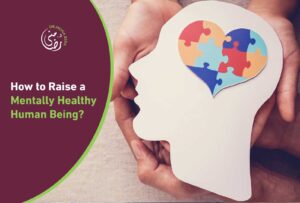Fasting and Losing Temper
“Fasting doesn’t mean losing your temper”
People always have that misunderstanding that fasting and preventing food and water almost all day long means you have the right to lose your temper, but the truth is that one of the benefits of fasting is that it teaches you how to control your physical and emotional, and mental desires.
Ramadan holds a significant place due to its unique pattern of worship. If you cannot control your mind, language, and actions, then fasting will not have a positive impact on you as Islam stresses the importance of showing good manners while interacting with others, during fasting.
What many people are unaware of about the reality of Ramadan, its true purpose. Ramadan and fasting during Ramadan can have a long-lasting effect on our lives and that the discipline and fine-tuning of our conduct that fasting during Ramadan teaches us should be practiced all year round.
How Can Ramadan Affect Our Self Development?
Besides being famous for preventing food and water all day long, Radaman is a month of spiritual training and intensified work in self-improvement that empowers you to notably change and to leave the holy month a better person.
Self-improvement and self-development, as well as change in general, can only take place when we allow the spirituality of Ramadan to enter our hearts and fill it with piety, and the sincere desire to perform acts of worship.
Fasting and Losing Temper
Unlike what many think, but fasting helps you get rid of bad habits, negative personality traits, and undesirable conduct, like losing temper during fasting.
One negative trait that fasting is very helpful in treating is anger and constantly having a bad temper, which considers an emotional disease of the heart. Modern medicine reveals that anger and losing your temper have a number of unwanted physiological effects on the body that can negatively impact the health of the fasting person.
Why is an increase in adrenaline so harmful to the fasting body?
As we mentioned above, anger can have a negative impact on your body especially when your fasting, and here is why.
When you are angry your body secretes ten times more adrenaline than when you are calm. And that adrenaline stimulates an increase in the burning up of glycogen stored in the liver. Adrenaline causes the fight or flight response and it burns lots of the body’s energy resources to do so.
Ideally, the fasting person should conserve the glycogen stores because the body (in the absence of food intake) relies on this glycogen to convert it into glucose which supplies the body with the energy it needs to fuel the basic bodily functions.
Repeatedly quarreling, yelling, and losing your temper, will expend energy and waste your body’s glycogen stores. By the end of the fast, you will feel physically and emotionally strained, tired, and worn out.
To cut the story short, fasting can be used as a disciplinary method to train yourself to control your anger. This blessed month teaches us to maintain unity, equality, and oneness, but the question is do people really understand the meaning of fasting or not.
In the meantime, remember that it is never too late to a therapist consult, if you need any mental consult please don’t hesitate to contact Dr. Mona Reda on 02 24159997- 01112169556 – 01002169556
Or visit the clinic at this address: 93 El Merghany Street Cairo, Egypt
Sources: Don’t lose temper in Ramadan









